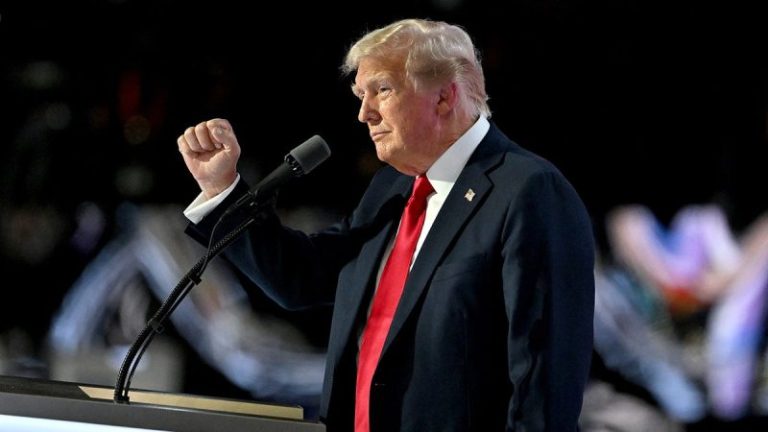President Donald Trump likes the idea of holding the GOP’s first ever midterm convention later this year in Nevada or Texas, people involved in the discussions tell Fox News Digital.
But those sources say that the president’s initial preferences don’t mean that other cities are off the list of convention host city contenders.
As Fox News Digital first reported, the Republican National Committee (RNC) last week took a big step toward holding the convention by approving a change to the party’s rules that would allow Chair Joe Gruters to convene a convention during a midterm election year.
Gruters, speaking with reporters after the RNC greenlighted the midterm convention, called it a ‘Trump-a-palooza’ where ‘we can really highlight all the incredible things that this president has done.’
National political conventions, where party delegates from around the country formally nominate their party’s presidential candidates, normally take place during presidential election years.
But with Republicans aiming to protect their narrow control of the Senate and their razor-thin House majority in this year’s elections, Trump announced in September that the GOP would hold a convention ahead of the midterms ‘in order to show the great things we have done’ since recapturing the White House.
Details on the date and location of the midterm convention are expected to be revealed in the weeks ahead and will likely be announced by the president.
In the meantime, here’s a possible list of five strategic cities for the midterm convention. The locations, which anchor key battleground states or could serve as gateways to shifting demographic blocks, are aimed at giving Republicans an electoral edge in the midterms.
Las Vegas, Nevada
The city that touts that it’s the world’s entertainment capital due to its nightlife, shows and its long role as the nation’s legalized gambling mecca is also the largest city in swing state Nevada, which Trump narrowly carried in 2024.
Nevada will once again play a crucial role in the 2026 midterms, with Republicans aiming to flip three Democrat-held House seats. And the state will also likely hold a competitive gubernatorial election, as GOP Gov. Joe Lombardo seeks a second term.
Holding their midterm convention in Las Vegas might give the GOP a ballot box boost, similar to the likely bounce Trump received as he narrowly won battleground Wisconsin in 2024 after Republicans held their national nominating convention in Milwaukee.
And a party gathering in Las Vegas could help the GOP further appeal to the growing block of Hispanic voters and ‘service-class’ workers who have been increasingly attracted to the party’s economic agenda and messaging.
Dallas, Texas
Though Texas has been reliably red for a couple of decades, Republicans are working to protect GOP Sen. John Cornyn’s seat this year in a state that Democrats have long tried to stay competitive.
And the GOP aims to go on offense in Texas as they defend their House majority, looking to flip up to five congressional seats from blue to red after Lone Star State Republicans took the lead in the redistricting battle.
Plus, similar to Las Vegas, holding a convention in Texas puts Latino voters front and center for Republicans.
Phoenix, Arizona
Holding their convention in the nation’s fifth most populous city may boost Republicans as they strive to win back control of Arizona’s governor’s office in the midterms, as well as defend a handful of GOP-controlled House seats as they defend the majority in the chamber.
Choosing Phoenix as host city would also allow the GOP to hammer home themes of border security and inflation in the crucial southwestern battleground.
And hosting in Phoenix, similar to Las Vegas and Dallas, would give Republicans an opportunity to showcase outreach to Latino voters.
Detroit, Michigan
With ballot box showdowns for a Democrat-held open Senate seat and governor’s office, swing state Michigan is a top GOP target.
And with four competitive House races, the results in the Great Lakes State may determine if Republicans keep their majority.
Holding the convention in Detroit also allows the GOP to focus on manufacturing, energy prices and trade.
Atlanta, Georgia
Republicans view Sen. Jon Ossoff as the most vulnerable Democratic senator seeking re-election this year.
And the GOP’s also defending the governor’s office, as popular Gov. Brian Kemp is term-limited.
Plus, naming Atlanta as host city would give Republicans a chance to showcase their efforts to court Black voters.










